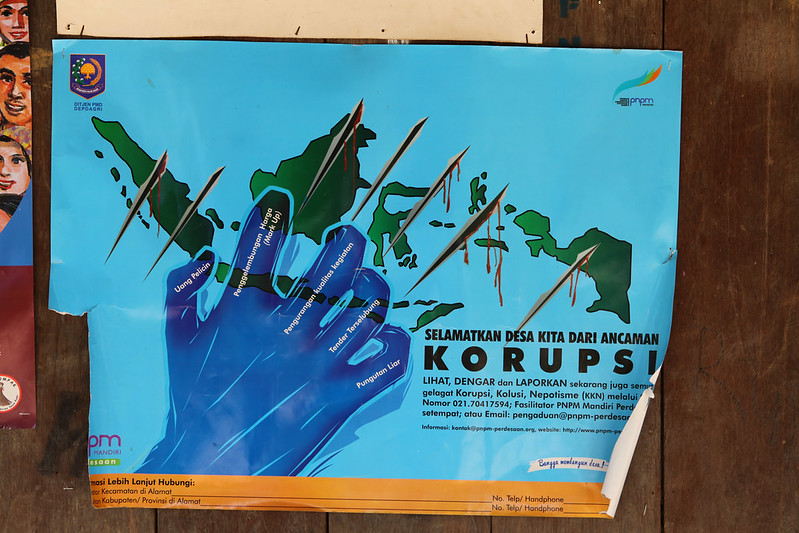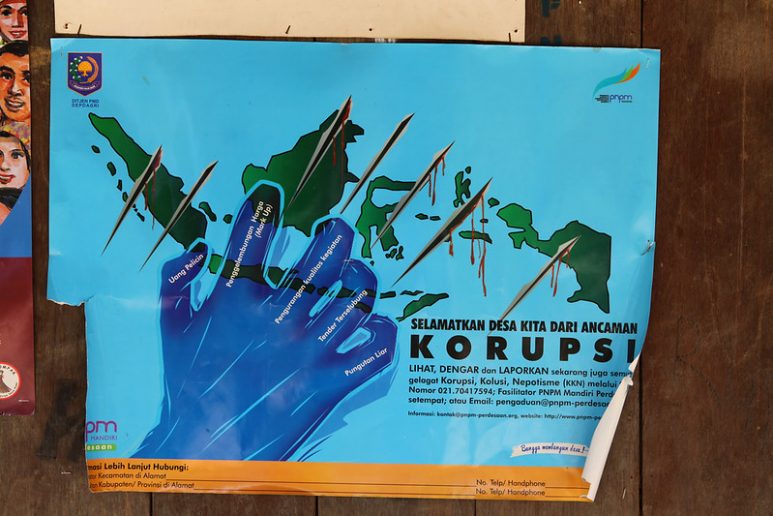14 October 2019
Country: Indonesia
By: Yearry Panji Setianto

 Last month, thousands of students across Indonesia took to the streets to demand the government to revoke a controversial anti-corruption law and postpone revisions of several proposed bills. Protests have carried on for weeks, and are being called one of the biggest student rallies after the 1998 movement that toppled former President Suharto’s thirty year regime.
Last month, thousands of students across Indonesia took to the streets to demand the government to revoke a controversial anti-corruption law and postpone revisions of several proposed bills. Protests have carried on for weeks, and are being called one of the biggest student rallies after the 1998 movement that toppled former President Suharto’s thirty year regime.
However, there is a marked difference in how international media covers the protests, as compared to local Indonesian media. What is more, the Indonesian media chose to cover the protests themselves, as opposed to why the citizens are protesting.
International news outlets are focussing on the new penal code mentioning that the bill could be used to criminalize premarital sexual activities and persecute members of the LGBT community. BBC’s headline “Indonesia protests over sex before marriage bill,” and Al Jazeera’s article, “Indonesia’s president delays vote on law banning extramarital sex” showcased how the international media chose to focus on the government’s proposals to criminalize premarital sex and what is being called a “gay sex ban” is overshadowing the protestor’s anti-corruption narrative. In reality, the students are demanding several major points. In addition to standing against bills banning extra-marital and LGBT sexuality, the students are also protesting against land reform and mineral mining bills, and rejecting the new anti-corruption and natural resources laws. They want to pass bills that criminalize sexual violence and support domestic workers, and bills that ban active military members from civilian office positions. At the same time, they are campaigning to end the military approach, stop the persecution of activists and release prisoners in Papua. They want to stop the burning of forests in Kalimantan and Sumatera, and punish those responsible for the burning. They want to resolve many of the human rights violations currently coloring the Indonesian sociopolitical landscape.
While the international media only focuses on a handful of these demands, the Indonesian mainstream media remains neutral—covering the logistics of the protest, as opposed to why they’re happening. Some have covered the social media aspect, describing the hashtags that mobilized the movement and the numbers of protestors—particularly when the rallies turned into riots.
Not surprisingly, when the protests became violent—with students throwing empty bottles and rocks at the Indonesian Parliamentary Building to express their rage at corruption—the mainstream media took the side of the law enforcement forces trying to suppress the protests.
Here is where the narrative became shaped as one of unruly students disrupting civic life. Many of the local media outlets focused on how the police were forced to deploy water cannons and tear gas to disperse the protestors, characterizing the students as violent and the police’s actions as necessary. One major news outlet in Indonesia, Beritasatu, quoted the police’s statement saying that the rally turned into riot because it had been hijacked by those who aim to disrupt the president’s inauguration.
Eventually, this changed public’s understanding of the students’ movement—which became easy to track on social media. While Indonesian netizens at first supported the hashtags that students were mobilizing around, many started urging students to return to campus rather than spending days rallying on the street. They claimed that those students’ primary job is to study, not to protest.
While the media reported on the police action, it conveniently ignored the casualties that resulted from it. Some important casualties of the demonstration have also been missing from the major Indonesian news headline. Two students of Halu Oleo University were shot death during a protest in Kendari—but almost no media outlets described the cause of the casualties as excessive police violence. After the police detained 845 protestors—including 570 middle and high school students—the Indonesian Child Protection Committee (KPAI) reported that 182 people are still unaccounted for.
Therefore, it is necessary that the Indonesian journalists should move beyond covering the demonstration as an event; but they should also be investing more time and resource to investigate what are the result, cost and consequence(s) of the protests.
Nenad Radoja
Contrary to popular belief, Lorem Ipsum is not simply random text. It has roots in a piece of classical Latin literature from 45 BC, making it over 2000 years old. Richard McClintock, a Latin professor at Hampden-Sydney College in Virginia, looked up one of the more obscure Latin words, consectetur, from a Lorem Ipsum passage, and going through the cites of the word in classical literature, discovered the undoubtable source.
